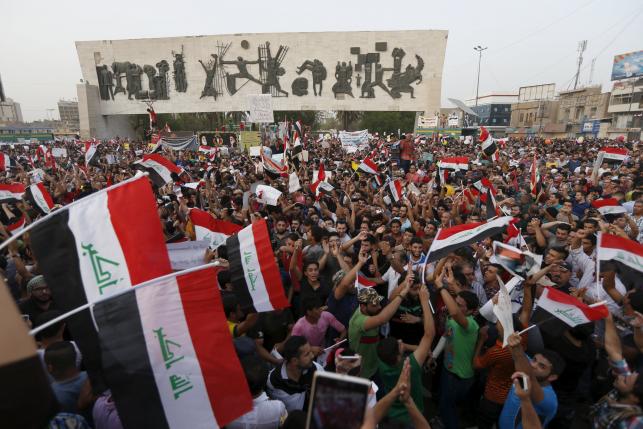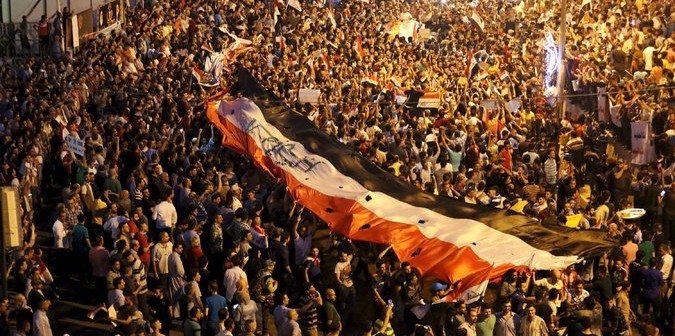Iraq is currently in the grips of a deadly battle with the violent extremist group ISIS. Since early 2014, ISIS have rampaged across Iraq (and Syria), and seized territories, leaving devastation and despair. For over a year, ISIS has enacted its reign of terror, stripping citizens of their basic rights, and carrying out televised acts of barbarity. But as the war rages on, with the Peshmerga and various governments launching air strikes, Iraq’s government is grappling with an entirely different battle. This battle is against the forces of corruption, which threaten to tear apart the already weakened government, and lead the country into an anarchic mess, at the mercy of ISIS.
Amid the publicised and widely-known activities of ISIS and their opponents in Iraq, another political struggle is in the mix. For many years, Iraq’s government has been plagued with corruption. According to Transparency International’s Corruption Perceptions Index, Iraq has a score of just 16/100, ranking it 170/175 countries. The real effects of corruption at the heart of Iraq’s political establishment have been felt. The sectarian nature of the US-created post-Saddam government in Iraq has enabled this.
 [via Reuters]
[via Reuters]
The exclusion of ethnic and religious minorities, in favour of a Shia-dominated Iraq under Nouri al-Maliki undoubtedly fostered the resentment which ISIS was able to take advantage of. The Iraqi armed forces, toothless in the face of ISIS, showed that affiliation, rather than skill, may have been seen as the important factor in the military. The effects of corruption can be felt far beyond the military sphere.
The pervasive nature in corruption ensures that it is present in every aspect of Iraqi life. While the world’s eyes have been focused on the fight against ISIS, Iraq’s people were once again rising up. Demonstrations and protests have rocked the country, as Iraq’s citizens demand that corruption is banished. The loss of several basic services show the real-life effects of corruption. Just last week, thousands of protesters took to the streets in the cities of Basra, Nasriyah and Najaf. Poor living conditions, power outages (in the midst of a heatwave which saw temperatures in Basra exceed 50 degrees Celsius), and poor quality tap water (some of it salty) drove the people to the streets, demanding an end to the culture of corruption which had lead to a deterioration in the provision of basic services.
On Sunday the 9th of August, the Iraqi government heeded their call. Prime Minister Haider al-Abbadi announced a raft of political reforms. Marking a break with the al-Maliki era, al-Abbadi made sure to emphasise that he would reappoint all of the senior officials on professional, and not sectarian standards. The major announcement was the abolition of the offices of Vice President and Deputy Prime Minister. Furthermore, expenses have been decreased, ministries have been merged or streamlined. But protesters are still on the streets, claiming that these reforms do not go far enough. Whether this is the case remains to be seen. But in enacting a pledge to clean up Iraq’s politics in the midst of a multi-faceted war in its territory, the Iraqi government is worthy of some credit. With the decrease in opportunities for corruption, perhaps there is hope for a future Iraqi response to ISIS. Perhaps it is only by reigning in the excesses and failings of government officials that Iraq may stand a chance of getting its country back.





